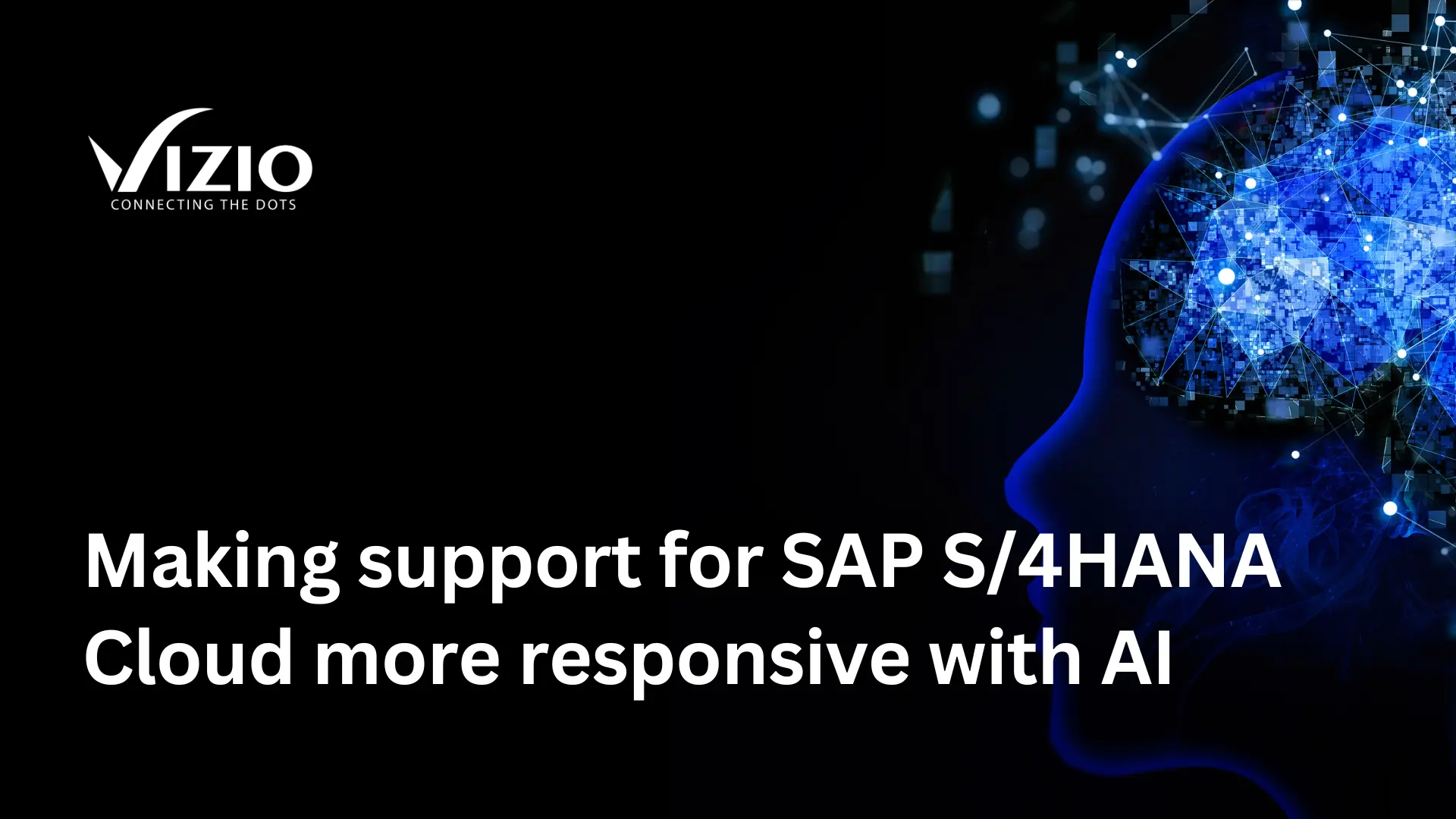In the rapidly evolving digital era, organizations heavily depend on enterprise resource planning (ERP) systems such as SAP S/4HANA Cloud to optimize their operations and fuel business expansion.
Even the most reliable ERP solutions, though, occasionally run into problems that call for quick assistance.
This is where artificial intelligence’s (AI) astounding potential manifests itself. Businesses may revolutionize their support processes by utilizing AI’s capabilities, improving responsiveness and efficacy while putting users at the center of their support ecosystem.
In this blog, we will explore the revolutionary effects of AI on SAP S/4HANA Cloud support, looking at how it may improve user experience and help businesses succeed.
The timeliness and efficiency of SAP S/4HANA Cloud support may be significantly increased by implementing AI technology.
Here are several applications of AI in this situation:
1) Building Chatbots:
AI technology may be used to build intelligent chatbots that can quickly answer frequently asked questions and handle regular support enquiries.
These chatbots may be developed utilizing ongoing machine learning algorithms and trained on past support data.
They can also help users troubleshoot issues, provide knowledge about issues already known to exist, and give step-by-step instructions to fix common issues.
2) Accurate comprehension of customer inquiries is crucial for efficient service:
To do this, Natural Language Processing (NLP) is essential because it enables AI systems to perceive and interpret user requests in a way that is comparable to human comprehension.
NLP algorithms make sure that user inquiries are correctly understood by examining phrase structure, grammar, and context.
Users no longer need to peruse complicated support documentation due to the technology’s intuitive and conversational interactions.
Users may thus get pertinent answers to their questions quickly.
3) Effective Assistance
To identify any gaps in the knowledge base, AI algorithms are able to analyse huge numbers of support requests, documents, and resources.
AI takes on the role of an informed curator by suggesting improvements and updates, ensuring that users have access to the most important and accurate information.
Users are given the ability to independently research solutions to their questions, which lessens their need for support staff.
4) Predictive Analytics
Dealing with problems after they arise is usually better to taking a proactive approach, especially when dealing with technological difficulties.
Historical support data and system logs may be examined to find patterns and trends that act as warning signs of prospective issues by utilising AI-powered predictive analytics.
This enables support staff to take a proactive stance by resolving emergent problems before they become more serious.
As a consequence, user interruptions are kept to a minimum and a smooth user experience is preserved.
5) Enhancing support services
This requires a thorough understanding of the customer experience. In this process, useful feedback and client satisfaction are crucial.
Organisations can properly identify the sentiment represented in user comments, whether it be positive, negative, or neutral, by applying AI-driven sentiment analysis tools.
This helps support personnel to pinpoint problem areas, give priority to urgent problems, and eventually improve user experience overall while successfully meeting customer demands.
6) Intelligent Routing
For rapid help, it is crucial to effectively route support tickets to the proper resources.
By examining the content and user data in support requests, AI systems can intelligently route and prioritise them.
AI promotes quicker response times and facilitates effective issue resolution by allocating priority levels and routing tickets to the most appropriate support resources or employees.
By eliminating the delays brought on by human ticket assignment, this automated routing ensures that consumers get accurate support as soon as they need it.
7) Self-Service Automation
Giving users self-service options completely changes the support industry.
The creation of interactive knowledge bases, tutorials, and guides that enable users to autonomously troubleshoot and fix common difficulties is made possible by AI technology.
By reacting to user demands and providing quick answers, these self-service systems constantly improve their efficacy by utilising machine learning.
By reducing dependency on support staff and accelerating issue resolution, this autonomy gives users a smooth and effective support experience.
8) Collaborative generative AI products
Around the world, businesses are struggling to close the skills gap between their current workforce and anticipated future demands.
This necessitates enhancing development, learning, and recruitment programmes.
Current procedures are manual, repetitious, and frequently ineffective.
In order to solve this problem, Microsoft and SAP worked together using generative AI.
They want to give tailored insights for employee engagement and assist SAP clients in attracting competent applicants.
Organisations may streamline hiring, align job requirements, and design specialised development plans by utilising generative AI.
In a cutthroat industry, this alliance revolutionises talent management.
Conclusion
Organisations may revolutionise SAP S/4HANA Cloud support by embracing artificial intelligence (AI), which improves response and efficiency.
The support experience is changing significantly thanks to AI-driven technologies like intelligent chatbots, natural language processing (NLP), knowledge base enhancement, predictive analytics, sentiment analysis, intelligent routing, and self-service automation.
These cutting-edge technologies enable companies to improve reaction times, deal with problems before they arise, and increase customer satisfaction.
Organisations can fully leverage SAP S/4HANA Cloud’s potential with AI as their dependable ally, assuring smooth operations and unabated growth in the digital era.

